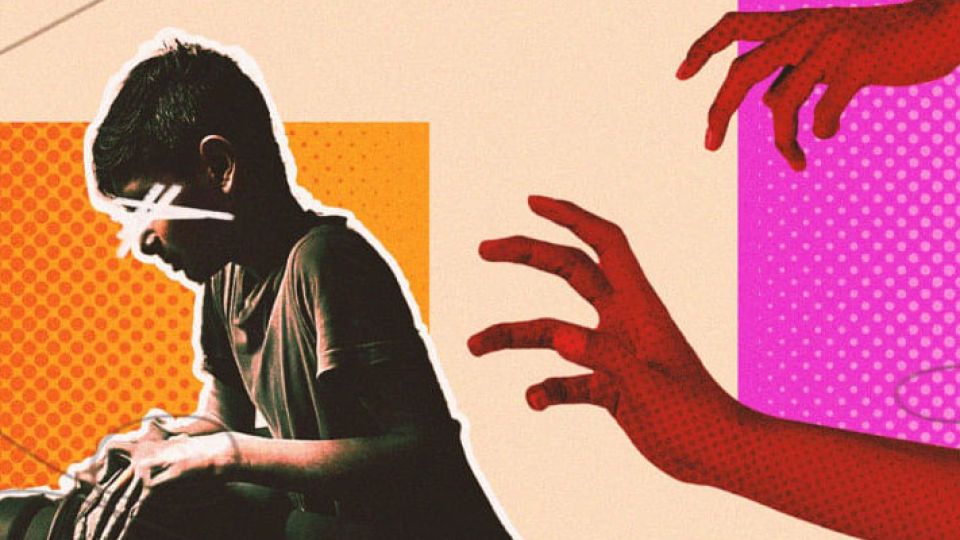July 4, 2025
DHAKA – Paedophilia and the grooming of children are yet not covered by any law in Bangladesh, which is a serious issue as children across the nation remain vulnerable to predators both in person and online. The country still lags behind many others that have enacted strict laws to prevent child exploitation and sexual grooming.
Grooming is the process through which an adult establishes a connection with an underage individual to win their trust, with the eventual aim of sexually abusing or exploiting them. While grooming is a risky step towards abuse, it is not abuse in and of itself. Since it is the first step towards potentially harming a child, many countries have declared it illegal.
Paedophilia, recognised as a mental illness, occurs when an adult or older adolescent develops a strong sexual attraction to children, usually those under the age of 13. Paedophilia targets children who have not yet reached puberty. If left unchecked, this condition may lead to grooming and long-term abuse.
In Dhaka, a shocking incident was revealed in February this year. An 11-year-old girl, allegedly “in love” with a 19-year-old man, went away with him when her family reported her missing. Police later dismissed it as a romantic issue. But this, in fact, was a case of sexual exploitation, not romance. Predators usually don’t go straight to abuse; instead, they will gradually build a bond through “grooming.” This could be as simple as offering the child chocolate, compliments, conversations, or even gifts. The goal is to gain the child’s trust and convince them that inappropriate adult actions are acceptable, even though they are deeply wrong. Weeks, months, or even years may pass during such process. Even in the absence of physical abuse, such practices are considered crimes in countries like the US, UK, India, Germany, the Netherlands, and New Zealand. However, Bangladesh is unable to penalise child grooming in cases where there is no physical abuse involved.
Existing laws in Bangladesh, such as the Penal Code, 1860, punish the crimes of rape under Sections 375 and 376, and certain kinds of exploitation of children under Sections 366A and 373. Meanwhile, the Women and Children Repression Prevention Act, 2000, discusses the sexual abuse of children but does not address grooming. The Children Act, 2013 protects children from violence, but it does not have a distinct section on grooming either. Even the recently passed Cyber Security Ordinance, 2025 does not focus on identifying and criminalising online grooming.
Online grooming is particularly dangerous. Through social media sites, adults pretend to befriend children, sending compliments, gifts, and sometimes even hinting at meeting up in real life. All these steps lead towards a long-term plan to sexually exploit the child. Since these crimes are difficult to spot in the first place, it becomes harder to punish them if appropriate laws are not in place.
Children are getting access to smartphones at a younger age than before, often with little to no supervision. While these devices offer access to education and entertainment, they also open the door to the threat of paedophilic grooming. Online predators target children through social media, messaging apps, and gaming platforms. Without legislative safeguards to identify and prosecute these early stages of abuse, children continue to be easy targets, and predators continue to operate in the shadows.
Earlier in May, the government issued a gazette of the Cyber Security Ordinance to identify, prevent, suppress, and subsequently try the crimes committed in cyberspace. We must also introduce explicit legal provisions defining and criminalising online grooming. But beyond that, we need comprehensive legislation criminalising grooming in both the cyber world and physical space. The law must cover all forms of preparation for sexual abuse of children.
Law enforcement personnel need training to identify and treat grooming seriously. In the absence of such a law, our children are at risk. Combating paedophilia and grooming requires a strong and effective law. Protecting children from abuse must begin years before abuse can start. A law that acknowledges grooming as a crime is the first step towards that protection.
Sidratul Muntaha is an LLM student at the Bangladesh University of Professionals (BUP).
Views expressed in this article are the author’s own.


